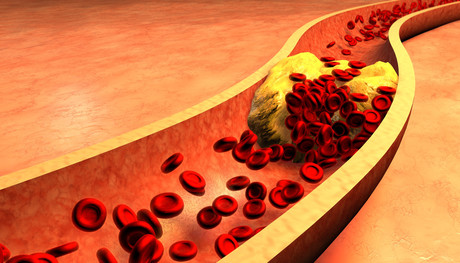Promising new drug candidate designed to lower cholesterol

The American offshoot of Australian biotech Noxopharm, Nyrada, is reporting important progress with a drug candidate known as NYX-330 — believed by the company to be the next breakthrough medication for heart attack and stroke.
NYX-330 is designed to lower cholesterol levels by inhibiting the action of a protein known as PCSK9, which has become one of the most highly valued targets in the pharmaceutical world since its discovery in 2005. A drug that successfully inhibits this protein would potentially rival anti-cholesterol drug Lipitor, claimed to be the biggest selling drug the world has ever seen.
“PCSK9 works by holding cholesterol in the bloodstream, slowing down its removal from the blood,” explained Dr Graham Kelly, Chairman of Nyrada and Managing Director of Noxopharm. “That’s a normal function. The problem comes when our bodies make too much PCSK9. The result is reduced clearance, resulting in higher cholesterol levels in blood.
“We now know that one of the consequences of statin therapy is an increase in PCSK9 levels, a normal response on the body’s part to less cholesterol being produced in the body.”
PCSK9 is understood to be the reason why statin drugs, the key cholesterol-fighting drugs, don’t work as well as they should in many people. Having a combined treatment with a statin drug and another drug to block PCSK9 function is thus driving a major race in the pharmaceutical industry.
“As good as statins are, they can do with extra help to bring cholesterol levels down to ground-floor levels in most people,” said Owen Dempsey, Executive Director of Nyrada. “The opportunity we are chasing is a drug that could become a standard co-treatment with statins to deliver those desired levels.”
The discovery of PCSK9 triggered a major push by the pharmaceutical giants to develop a PCSK9 inhibitor that could be given in conjunction with a statin drug. The idea was that the statin drug would reduce the amount of cholesterol being made in the body, and the anti-PCSK9 drug would mean that what cholesterol was made would be more readily removed from the blood. A tablet with the same features as the statins — convenient, daily, affordable and oral — was the goal.
That goal hit early snags, with a general switch to developing alternative treatments based on large molecule drugs (monoclonal antibodies), two of which came to market in 2015 — Repatha (Amgen) and Praluent (Regeneron-Sanofi). As noted by Dempsey, “Two very large clinical studies using Repatha or Praluent have now proved that combining them with statins delivers significant health benefits, with blood cholesterol levels falling about 60% more than statins alone.
“But despite that proven benefit, use of these two drugs tends to be restricted to very high-risk patients,” he continued. “One reason is practical, with the drugs needing to be injected every two or four weeks. The second is cost, with a cost for unsubsidised patients of about US$14,000 per year on an ongoing basis.”
So how did NYX-330 come about? Dr Kelly explained, “A private Australian company headed by Dr Ian Dixon and assisted by three Australian chemists created the breakthrough. Using proprietary drug design software, they identified an area on the PCSK9 molecule that provided a suitable landing site for a small molecule. NYX-330 is the result of that pioneering science.
“NYX-330 blocks the ability of PCSK9 to bind to the cholesterol receptor. That means more receptors available to remove cholesterol from the blood, and that equals lower blood cholesterol levels.
“We are confident that we have a PCSK9 inhibitor with the potential to meet the goals of a convenient, oral, once-daily treatment at an affordable cost.”
NYX-330 currently is undergoing studies in France and elsewhere designed to optimise its function, with an anticipated 15–18 months before it will be ready to bring into the clinic.
High-potency cannabis use leaves a unique mark on DNA
Frequent users of high-potency cannabis have changes in genes related to mitochondrial and immune...
Scaffold-based method for culturing antitumour bacteria
Bacteria-based cancer therapy represents an exciting new treatment option — but in order to...
mpox vaccine appears safe and effective in adolescents
Interim analysis of an mpox vaccine trial has found the vaccine is safe in adolescents and...




